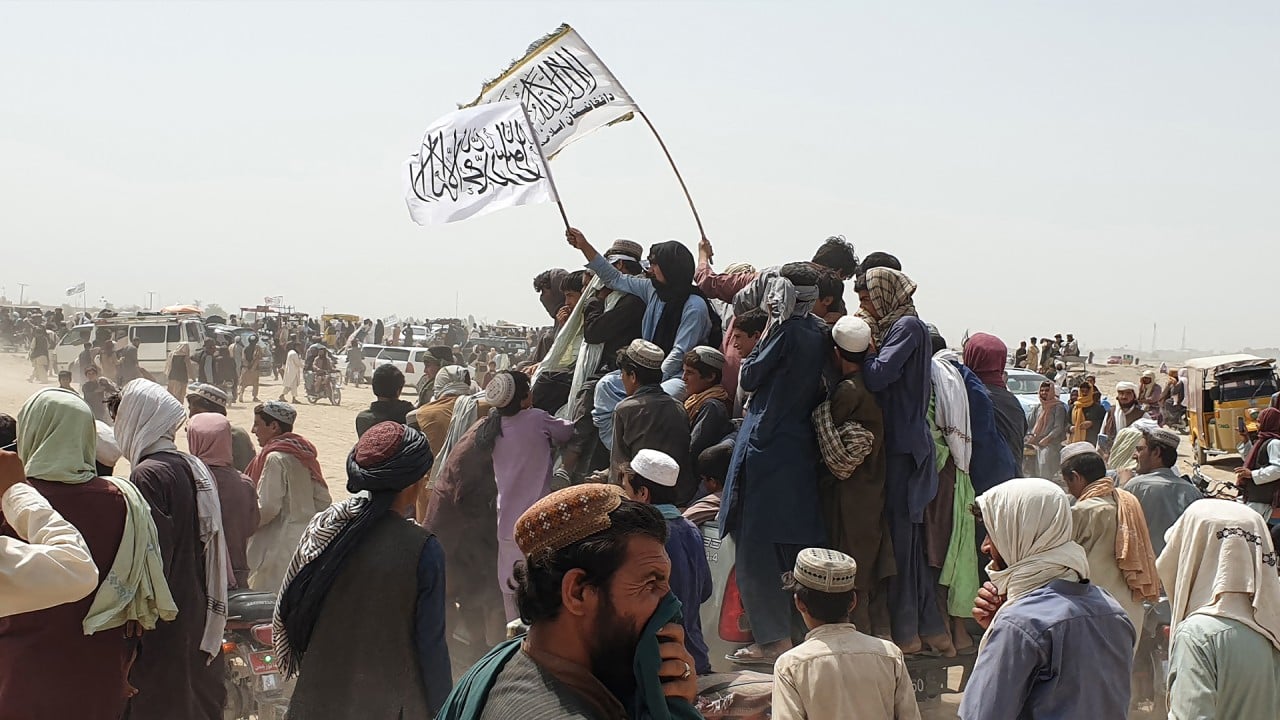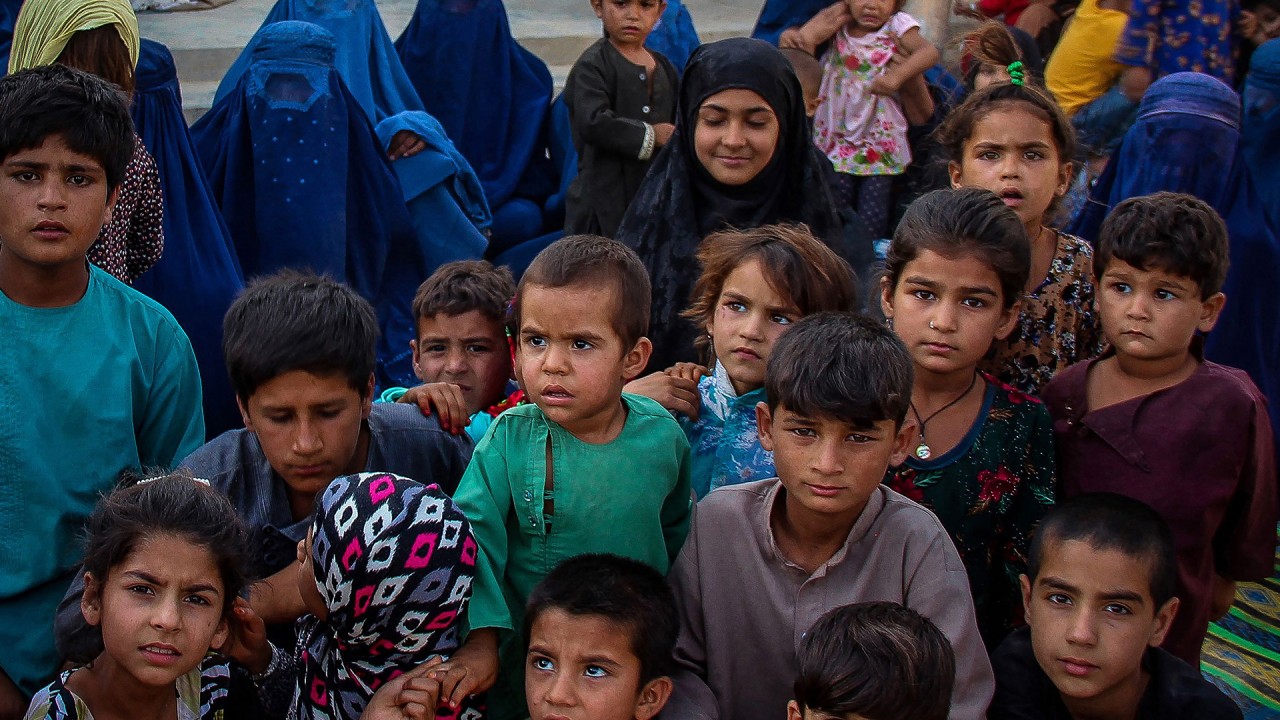
India’s worries over Taliban in Afghanistan fuels talk of revived ‘Northern Alliance’ with Iran, Russia
- The anti-Taliban military front comprising several ethnic minority groups operated from 1996 to 2001 and was supported by Russia, Iran and India
- But distrust towards the government in Kabul and the Taliban’s tight border controls could impact any efforts for a coordinated resistance effort, analysts say
The alliance was supported by Russia, Iran and India after its inception in 1996 and remained a pocket of resistance in northern Afghanistan until it disbanded in 2001, when a more inclusive Hamid Karzai government, which had representatives from minority groups such as the Pashtuns, came to power in Kabul.
Indian external affairs minister S. Jaishankar’s visit to Iran and Russia last week fuelled such speculations, although analysts have observed that New Delhi was for now clearly focused on a diplomatic solution.
On Wednesday, Jaishankar and the foreign ministers of seven other nations, including China and Russia, met at the Shanghai Cooperation Organization (SCO) in Tajikistan, where he stressed that confronting extremism and terrorism should be a key purpose of the grouping, which is seen as a counterweight to the US-led Nato military alliance.
Senior officials from the SCO countries, as well as the EU and US, met on Friday in the Uzbek capital of Tashkent, for a discussion on regional connectivity that pivoted to focus on the impact of instability in Afghanistan.

01:42
Taliban claims key border crossings in Afghanistan as US commander departs country
Alexey Kupriyanov, a senior research fellow at the Institute of World Economy and International Relations of Moscow’s Russian Academy of Sciences, said the revival of the Northern Alliance was “theoretically possible”.
“But it needs charismatic and respected leaders, and the support of ethnic minority groups like the Tajiks, Uzbeks, Hazaras, and also the Pashtuns dissatisfied with the Taliban,” the analyst said.
But Kupriyanov added that so far, many Afghans viewed the Taliban as an acceptable alternative to a corrupt government in Kabul. Their alternative was to try to flee the country, he said.
China a ‘welcome friend’ in Afghanistan: Taliban spokesman
Despite nearly two decades of international oversight and billions of dollars spent, with US air power largely removed from Afghan skies, the Taliban has seized more than 150 districts in the past two months alone, with many districts and bases falling without a shot fired.
The Taliban has also deployed tribal elders to broker the surrender of poorly provisioned Afghan troops who appear to have lost the will to fight, the AP reported.
Nandan Unnikrishnan, a distinguished fellow at the Observer Research Foundation think tank in New Delhi, said the situation on the ground today was dramatically different from that in the 1990s.
The Taliban was making every effort to cut off any chances of the opposition being supported from abroad by establishing full control of the borders, he said.
In the last week, the Taliban had spread over areas bordering five countries – Iran, Tajikistan, Turkmenistan, China and Pakistan.
“Without a land link to the resistance that may emerge against the Taliban, it will be difficult [for outsiders] to provide support,” Unnikrishnan said.
Russia and Iran, which have both been engaging with the Taliban in recent years, have been assured their frontiers with Afghanistan will be peaceful, and the rights of the religious and ethnic minority groups would be protected.
Pakistan seeks peace with Baloch rebels, with China and Afghanistan on its mind
Kupriyanov said Moscow was known for its “realism” in international politics and expected the same from the Taliban.
He added that the Taliban knew if they tried to expand in Central Asia, Russia would come to the rescue of Uzbekistan, Tajikistan, Kyrgyzstan and Turkmenistan.
For the Northern Alliance to be revived, Kupriyanov said, beyond a core of local Taliban opponents, the Taliban would also need to damage its relations with Iran and Russia to the point that they would be willing to arm rebels against the militant group.

02:26
Thousands flee as Taliban surges in Afghanistan
India’s concerns
New Delhi’s persistent concern is that Afghanistan will become a launch pad for attacks on India backed by its arch-rival Pakistan.
In 1999, when the Taliban was in power in Afghanistan, India was forced to free Pakistani extremist Masood Azhar in exchange for passengers of a hijacked Indian aircraft that was flown to southern Afghanistan.
Azhar then set up the Jaish-e-Mohammed extremist group in Pakistan. Although Islamabad banned it in 2002 after international pressure, the group continued to function under other names to launch terror attacks in the Indian region of Jammu and Kashmir that is also claimed by Pakistan.
Will Kabul fall to Taliban? Biden defends US exit from Afghanistan
At the Tashkent meeting on Friday, Afghan President Ashraf Ghani criticised Pakistan for not stopping terrorists from crossing over into Afghanistan and for failing to convince the Taliban to embrace peace.
India’s growing concern about the security situation in Afghanistan led it to evacuate most of its staff from the Kandahar consulate recently, while diplomats have of late actively debated whether New Delhi should have done more earlier to engage the Taliban.
Unnikrishnan said India should open a channel of communication to the group, since it was emerging as a possible single power controlling most of the country.
However Kanwal Sibal, a retired Indian foreign secretary, said in a commentary on India’s News18 website that New Delhi’s stance against terrorism and radicalism “would have lost its rationale if India itself legitimised such an obscurantist, medieval-minded Islamic group as the Taliban with all its terrorist brutalities”.

But if Afghanistan’s many warlords turn to a new civil war to seek power or preserve their interests, then India will also have to be prepared to take stronger action, other observers said.
Amar Sinha, a retired Indian diplomat who served in Afghanistan as ambassador from 2013 to 2016 and was in favour of New Delhi engaging the Taliban, said the situation would only become clearer once the US pull-out was completed.
The Taliban claimed to have evolved in the past two decades, he said, “but we will know how much they have evolved only after all the US troops leave”.
Al-Qaeda mocks US exit from Afghanistan, as Taliban advances
Gautam Mukhopadhaya, who was India’s ambassador in Kabul from 2010 to 2013, struck a more positive note, saying the Afghan state would not “disappear”.
India has invested over US$3 billion in Afghanistan’s development since 2001. It has built hospitals, dams, power generation centres, bridges and the Afghan parliament, as well as training teachers, health workers and Afghan bureaucrats.
“The Taliban is bound to face a national resistance that will include commanders [trained by Afghan security forces], older jihadi fighters, their offspring and popular uprising and militias,” said Mukhopadhaya.
He said while the Taliban was seen as a stabilising force in the past, Afghans now viewed it as a repressive force trying to suppress hard-won freedoms, and urged India to continue with its diplomatic approach to pressure the Taliban to enter talks for a political settlement.


